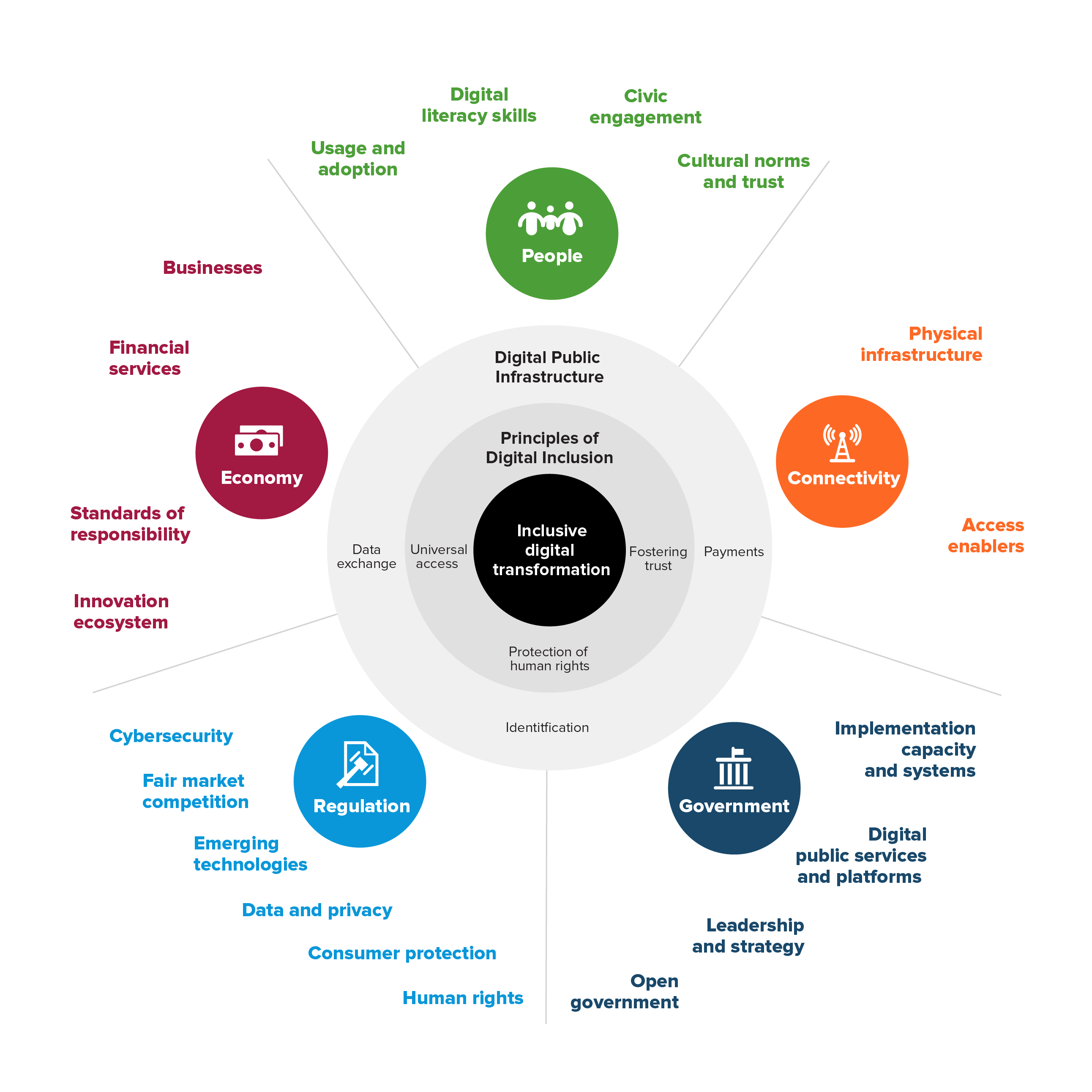
Digital Readiness Assessment
Connecting Every Malawian - Building an Inclusive Digital Society, Together
Download the ReportOverview
"The Digital Readiness Assessment provides a comprehensive analysis of Malawi's digital landscape, highlighting our strengths and opportunities for growth. This assessment will guide our efforts to build an inclusive digital society that leaves no Malawian behind."
- Hon. Moses Kumkuyu Kalongashawa
Minister for Information and Digitalization
The Digital Readiness Assessment (DRA) for Malawi provides a strategic overview of the nation's progress in digital transformation while identifying critical opportunities and challenges. Aligned with the Malawi Vision 2063 and the Sustainable Development Goals (SDGs), the report highlights how digitalization can drive inclusive development, bridge disparities, and foster innovation across various sectors.
Malawi is at an opportunistic stage of digital transformation, demonstrating progress in key areas such as connectivity, Digital Public Infrastructure (DPI), governance, and regulation. The country has achieved notable milestones, including significant 4G network coverage and universal Digital ID registration for adults. However, systemic challenges persist, including limited rural access to connectivity, low digital literacy, weak institutional coordination, and affordability barriers that restrict widespread adoption of digital technologies.
What is Digital Readiness Assessment?
The UNDP Digital Readiness Assessment (DRA) is a practical and rapid diagnostic tool designed to provide high-level insights into a country's digital strengths and opportunities. By combining quantitative metrics (e.g., internet penetration, mobile adoption) with qualitative inputs (e.g., stakeholder experiences, institutional challenges), the DRA offers a balanced view of a nation's digital maturity.
It serves as an "entry point" for engagement among governments, policymakers, academia, civil society, the private sector, and international development partners, fostering collaboration and alignment around shared objectives.
Participation in the Digital Readiness Assessment
The assessment engaged diverse stakeholders across different age groups, genders, and sectors to ensure a comprehensive understanding of Malawi's digital landscape.
Participation by Age
The majority of participants were between 25-44 years old, representing 65% of the total respondents.
Participation by Gender
Male participants represented 65% of respondents, while female participants accounted for 35%.
Participation by Sector
Government officials constituted the largest group (40%), followed by private sector (25%) and civil society (15%).
Malawi's Digital Readiness
Malawi's Position on the Digital Readiness Scale
Limited digital infrastructure and adoption
Advancing without coordinated strategy
Coordinated with clear governance
Strategic priority with implementation
Fully integrated digital technologies
At the Opportunistic stage, Malawi demonstrates progress in selected areas of digital transformation but lacks a coordinated strategy. The country has established foundational frameworks such as the Data Protection Act and National Cybersecurity Strategy, but implementation remains inconsistent. Key challenges include limited rural connectivity, affordability barriers, and gaps in institutional coordination.
Detailed Results by Pillar
Government
Opportunistic Stage
Malawi is in the Opportunistic stage of digital transformation within the Government Pillar, reflecting foundational progress in leadership roles, capacity-building programs, and the implementation of digital public service platforms. However, coordination challenges, limited institutional capacity, and gaps in inclusivity and transparency hinder further progress.
Key Recommendations
- Establish a centralized Digital Transformation authority to coordinate national efforts
- Empower the Department of E-Government with greater authority and resources
- Develop a unified framework to improve inter-agency collaboration
- Expand MACRA's regulatory authority to address emerging digital needs
Next Steps
Building on the insights from the DRA, the next step is to develop Malawi's National Digital Transformation Strategy and Roadmap that requires a structured, multi-stakeholder approach to address existing gaps and accelerate digital progress.
Develop a Comprehensive Digital Strategy
Click to learn more
Create a coordinated plan to enhance digital infrastructure, policies, and e-governance systems, ensuring inclusion and data protection.
Invest in Digital Skills and Entrepreneurship
Click to learn more
Promote digital literacy, reskilling, and innovation by fostering partnerships and supporting local digital businesses.
Expand Connectivity and Cybersecurity
Click to learn more
Strengthen rural internet access, build robust digital platforms, and implement advanced data protection measures for a secure digital ecosystem.

